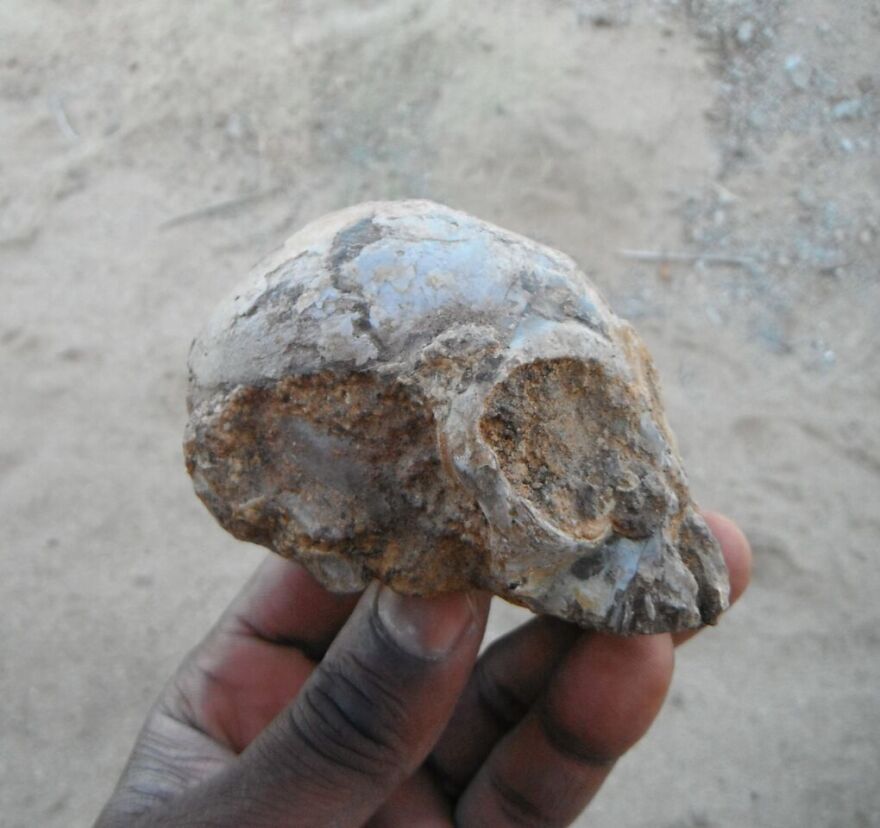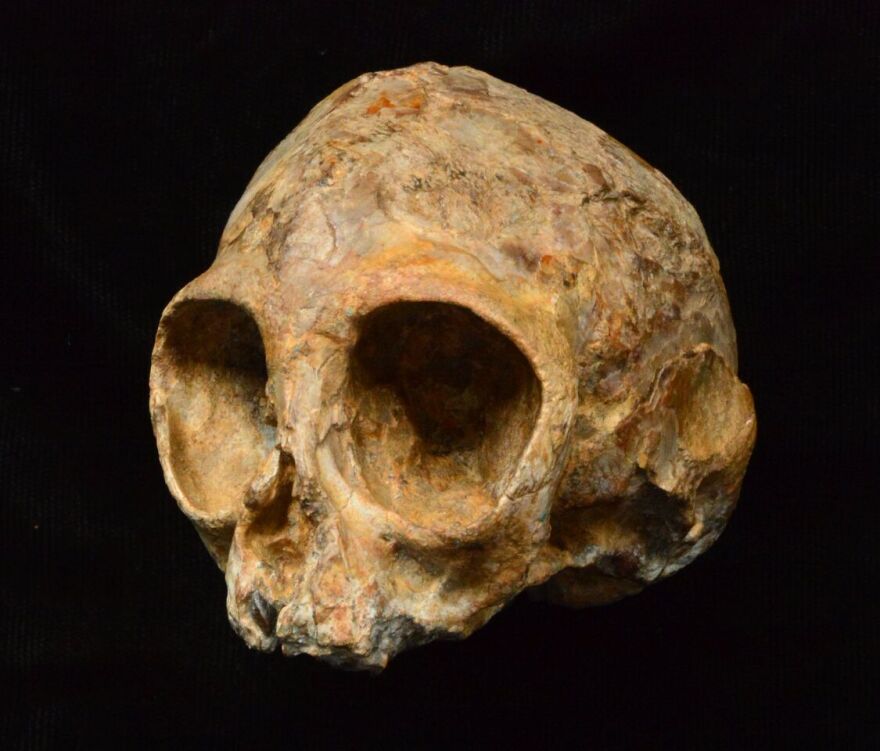Researchers say they've found a 13 million-year-old fossil in the Turkana Basin of northern Kenya that sheds new light on the evolution of apes. The findings were released Wednesday in the scientific journal called Nature.
The infant ape skull known as Alesi is the size of a lemon. Scientists say a nearby volcano buried the forest where the baby ape lived, preserving the fossil. Ellen Miller, an anthropology professor at Wake Forest University, contributed to the study.
“We knew nothing about apes from the time period from between about 15 million and 10 million years ago, which is right about the time that the origin of modern apes would have occurred, so to find Alesi who's at 13 million-years-old was a really great find,” says Miller.
It's also an extremely rare find because it's fully intact. 3-D x-ray imaging performed at the European Synchrotron Radiation Facility in Grenoble, France shows its teeth, and characteristics of the brain and inner ear.
“Humans and modern apes are very closely related. Alesi really sits at the origin of modern apes, so we've had a very good record of fossil humans for a long time. We all know of Homo habilis, Homo erectus, Neanderthals, but what we haven't had is any information about what the ancestors of the modern apes looked like. But now we do.”

Miller says scientists will continue research to see if they can learn even more about the baby ape's brain capacity and brain organization.
“Finding Alesi is just the beginning,” she says. “Think about future research and what younger scientists can do as we have access to more technology. This complete skull - it is now forever going to be a touchstone for all future studies in primate evolution and growth and development in the apes, so it's fantastic in that way.”
Miller says the finding has also helped researchers answer an important question about the origin of apes.
“There was some discussion for a while about whether the modern apes actually originated in Africa or in Eurasia, because gibbons today live in Southeast Asia, and this pretty squarely confirms that the origin of apes was in Africa.”
Miller says the fossil is currently in a vault at the National Museums of Kenya in Nairobi.
The work was supported by the Leakey Foundation and trustee Gordon Getty, the Foothill-De Anza Foundation, the Fulbright Scholars Program, The National Geographic Society, The European Synchrotron Radiation Facility, and the Max Planck Society.

